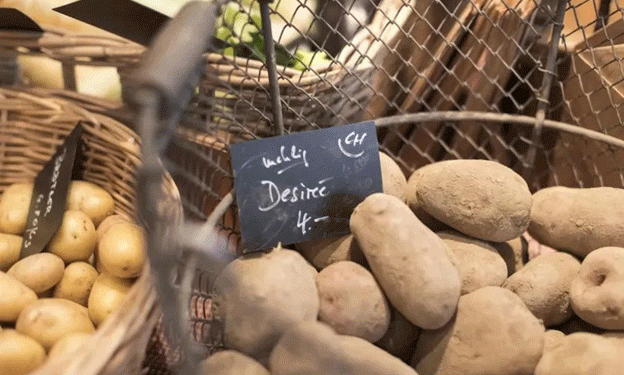Switzerland’s Potato Supply Strain: A Closer Look at the 2024 Harvest Challenges
Switzerland, renowned for its efficient agricultural sector, is grappling with an unexpected potato shortage this year. Due to adverse weather conditions and a severe outbreak of late blight, the country has been compelled to increase its import quotas substantially. This article delves into the factors contributing to the current crisis and what it means for farmers, agronomists, and the broader agricultural community.
Adverse Weather and Disease Impact
The 2024 potato growing season in Switzerland has been marred by unusually wet and humid conditions. According to Christian Bucher, Director of Swisspatat, these conditions have led to a particularly harsh outbreak of late blight, a fungal disease that severely affects potato crops. Such environmental challenges have significantly diminished the expected harvest volume, creating a substantial supply gap.
In response to this shortfall, the Swiss government has authorized an increase in potato imports. Effective from September 1, 2024, an additional 15,000 tonnes of processing potatoes will be imported under the tariff quota. This measure is intended to alleviate some of the pressures on the domestic market, but there are concerns that it may not be sufficient to fully meet the country’s needs.
Potential Shortfall and Future Outlook
Despite the increase in import quotas, there is skepticism about whether this will adequately cover the demand. Swisspatat anticipates that the total harvest may still fall short of requirements, though the full extent of the shortfall will only become clear in the coming weeks. The situation underscores the vulnerability of agricultural systems to unpredictable weather patterns and disease outbreaks.
Implications for the Agriculture Sector
The current situation highlights several critical issues for the agricultural sector. First, it demonstrates the need for more resilient potato varieties and improved disease management practices to mitigate the impact of similar events in the future. Additionally, it emphasizes the importance of having flexible import policies to handle unexpected shortages.
For farmers and agronomists, the ongoing challenges serve as a reminder of the importance of adaptive strategies in crop management. Enhanced forecasting and early intervention measures may be crucial in managing such risks more effectively.
Switzerland’s potato harvest for 2024 has been significantly affected by adverse weather and disease, leading to increased import quotas as a temporary solution. While the additional imports may help alleviate some of the supply issues, the full impact on the market remains uncertain. The situation calls for continued attention to crop resilience and adaptive agricultural practices to better handle future disruptions.







